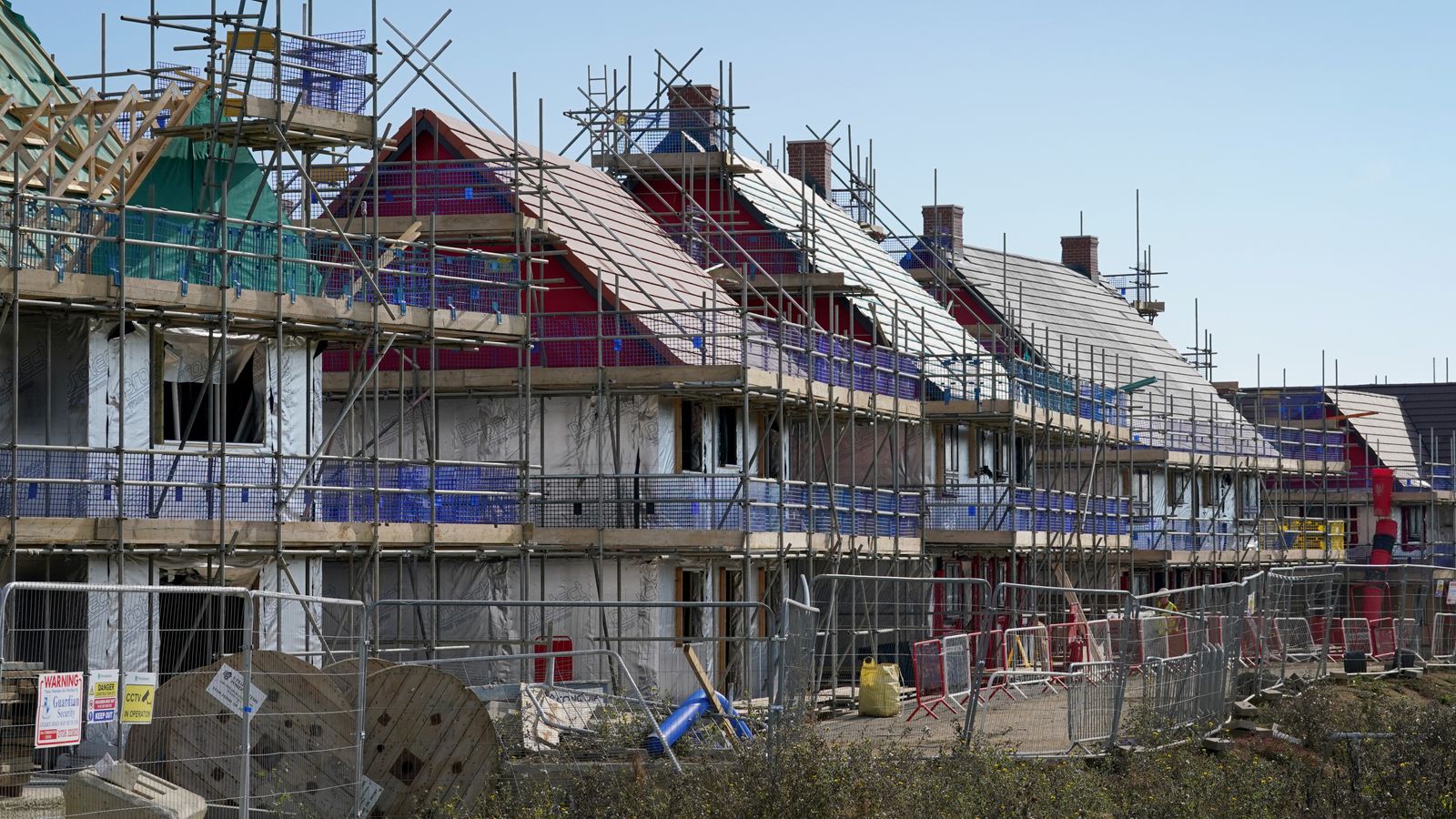Michael Gove is set to water down the government’s target to build 300,000 homes every year following an angry backlash from his own party’s MPs.
A Commons vote on the Levelling Up and Regeneration Bill had to be dropped last month after 60 Conservatives signed an amendment calling for the mandatory target to be scrapped.
But the legislation is due to return next week and opposition is said to be rising, so the housing secretary is now understood to have written to a number of MPs promising the target will instead be a “starting point” and become “advisory”.
Politics live: Polling suggests Tories still on course to lose
Critics worry the dampening of the target will lead to even less stock for people to get onto the housing market, especially as the cost of living crisis continues.
Labour’s shadow housing secretary Lisa Nandy accused the government of being “weak”, calling the move “unconscionable in the middle of a housing crisis”.
The new bill is meant to introduce a number of sweeping reforms to the planning system, but has resulted in anger from a section of the Conservative Party and the first real threat of rebellion under Rishi Sunak’s leadership.
Why I am one of the many landlords thinking of leaving the business
Michael Gove has ‘no confidence’ in housing body that owned flat where Awaab Ishak died
Awaab Ishak death: Michael Gove announces housing body that owned flat where toddler was killed will be stripped of new government funding
MPs Therese Villiers and Bob Seely led the campaign against the housebuilding target, saying communities would be forced into accepting unwanted developments, and claimed over 100 of their colleagues were now backing them.
But others on the Tory benches attacked their criticism, saying their amendment would “enshrine ‘nimbyism’ as the governing principle of British society”.
Sky News understands Mr Gove and other ministers held lengthy meetings with the rebels over the past week and had now reached a compromise whereby the target will stay, but councils will be able to argue against developments where there were “genuine constraints” on delivering it.
Examples would include having to build at a density which would significantly change the character of an area to meet the target.
Other changes are also understood to have been made to the bill, including charging a higher infrastructure levy on greenfield development, taking action to prevent land banking – where developers buy land but hold onto it, rather than building on it – and ending the “duty to cooperate” for more rural areas to help meet the housing requirements of nearby cities.
Responding to the change in direction, Mr Seely said: “We know how many communities have been battling against bad development.
“Supported by well over 100 Tory MPs, we have helped ministers shape a housing and planning agenda which is more conservative than the one we currently have.”
He added: “Targets will be advisory, not mandatory. The power of planning inspectors is weakened. Rules which have helped developers force councils to release land will be weakened.
“The new language we’ve agreed will work with communities, speaking to the character of areas and celebrating the beauty of good design. It understands the need for farmland, will significantly emphasise brownfield over greenfield development and will help deliver homes for young people.”
Ms Villiers also praised the move, saying: “These reforms will rebalance the planning system and give local communities a greater say over what is built in their neighbourhood.
“The compromise we have secured shows that positive change can be achieved through backbench scrutiny of legislation”.
But Labour’s Ms Nandy attacked the decision, saying: “We offered Labour votes to defeat the rebels, but Rishi Sunak and Michael Gove seem to have chosen party before country.
“This is so weak. In office but not in power.”






















